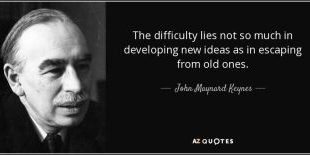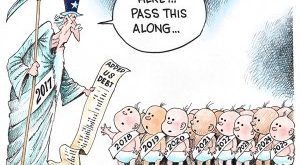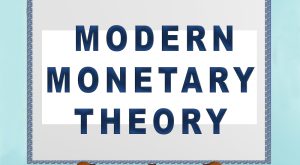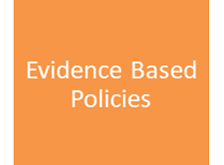Guest post by Jeff Mosenkis of Innovations for Poverty Action. Cool panel on Wednesday, now that schools have gone remote, how to assess remotely if kids are learning. And another on Thursday including Anne Karing of Princeton, Jonathan Robinson from UC Santa Cruz, presenting new data on covid impacts in Liberia, Sierra Leone, and Malawi University of Cape Town economist Grieve Chelwa has been critical of RCTs in the past so my colleague and were braced for his online discussion at Africa...
Read More »Keynesian vs Newtonian economics
Keynesian vs Newtonian economics To complete his theory, Keynes tied these elements together. The market for money determined interest. Interest (and the state of business confidence) determined investment. Investment, alongside consumption, determined effective demand for output. Demand for output determined output and employment. Consumption out of incomes determined savings. Employment determined the real wage. In this world, a change in monetary policy,...
Read More »Rethinking public debt
[embedded content] Public debt is normally nothing to fear, especially if it is financed within the country itself (but even foreign loans can be beneficent for the economy if invested in the right way). Some members of society hold bonds and earn interest on them, while others pay taxes that ultimately pay the interest on the debt. The debt is not a net burden for society as a whole since the debt ‘cancels’ itself out between the two groups. If the state issues bonds at a...
Read More »The Deficit Myth: a review
The Deficit Myth: a review One common objection to neoclassical economics is that it underweights the importance of history and class. It is therefore paradoxical that Stephanie Kelton’s The Deficit Myth, which claims to challenge orthodox economics, should be guilty of just these vices. Let’s start by saying that I wholly agree with the main claims she makes — that a government which enjoys monetary sovereignty can always finance its borrowing. Asking how...
Read More »Keynes on microfoundations
The atomic hypothesis which has worked so splendidly in Physics breaks down in Psychics. We are faced at every turn with the problems of Organic Unity, of Discreteness, of Discontinuity – the whole is not equal to the sum of the parts, comparisons of quantity fails us, small changes produce large effects, the assumptions of a uniform and homogeneous continuum are not satisfied. Thus the results of Mathematical Psychics turn out to be derivative, not fundamental, indexes, not...
Read More »Paul Krugman — a case of dangerous neglect of methodological reflection
Paul Krugman — a case of dangerous neglect of methodological reflection Alex Rosenberg — chair of the philosophy department at Duke University, renowned economic methodologist and author of Economics — Mathematical Politics or Science of Diminishing Returns? — had an interesting article on What’s Wrong with Paul Krugman’s Philosophy of Economics in 3:AM Magazine a couple of years ago. Writes Rosenberg: When he accepts maximizing and equilibrium as the...
Read More »People who have their heads fuddled with nonsense
People who have their heads fuddled with nonsense The Conservative belief that there is some law of nature which prevents men from being employed, that it is “rash” to employ men, and that it is financially ‘sound’ to maintain a tenth of the population in idleness for an indefinite period, is crazily improbable – the sort of thing which no man could believe who had not had his head fuddled with nonsense for years and years… Our main task, therefore, will be...
Read More »RCTs and the limits of evidence-based policies
RCTs and the limits of evidence-based policies There is something paradoxical about Michael Gove’s recent speech calling for government to be “rigorous and fearless in its evaluation of policy and projects.” It’s that his praise for evidence-based policy has come in a year when we’ve seen that policy should sometimes not be based on rigorous evidence … It’s sometimes hard to extrapolate the results of the RCTs lauded by Gove. They “prove”, for example, that...
Read More »Dags för socialdemokratin att göra upp med sin nyliberala åtstramningpolitik
I stället för att använda den möjlighet som Coronakrisen inneburit att göra rent hus med nyliberalismens falska berättelser, har den socialdemokratiska partiledningen valt att försvara den ekonomiska politik som förts sedan 1990-talet … Trots att nästan alla länder vi brukar jämföra oss med har kunnat göra lika stora eller betydligt större finanspolitiska satsningar i krisen, talas här i landet om att det skulle vara tack vare “ansvarsfull” sparpolitik förut som vi nu kan...
Read More »The concept of dynamics
The concept of dynamics The concept of dynamics, which complements bourgeois “ahistoricity,” is raised to something absolute, while it nevertheless, as the anthropological reflex of the laws of production, must be critically confronted in the emancipated society with need. The idea of unfettered doing, of uninterrupted creating, of chubby-cheeked insatiability, of freedom as intense activity, feeds on the bourgeois concept of nature, which from time...
Read More » Heterodox
Heterodox









